
Pichilemu: The Surfing Paradise of Chile
Pichilemu, a charming coastal town in central Chile, is renowned for its world-class surfing spots, making it a haven for surfers and beach lovers alike. With its pristine sandy beaches and powerful waves, this destination offers an unparalleled experience for both novice and seasoned surfers. The town's laid-back atmosphere and friendly locals add to its appeal, making it a perfect getaway for those seeking relaxation and adventure. Beyond its surfing fame, Pichilemu boasts a rich cultural heritage. The town is dotted with beautiful colonial architecture, including the iconic Agustín Ross Park, which features stunning gardens and historic buildings. Visitors can explore the local craft markets and indulge in delicious Chilean cuisine at the various seaside restaurants. Nature enthusiasts will also find Pichilemu captivating, with its numerous hiking trails, lush forests, and breathtaking coastal views. Punta de Lobos, a nearby natural reserve, is a must-visit for its dramatic cliffs and marine wildlife. Whether you're riding the waves, exploring cultural sites, or simply soaking up the sun, Pichilemu offers something for everyone.
Local tips in Pichilemu
- Visit Punta de Lobos early in the morning to avoid crowds and catch the best waves.
- Pack layers as the coastal weather can change quickly, especially in the evenings.
- Explore the local markets for unique souvenirs and handmade crafts.
- Try the fresh seafood at local restaurants, particularly the ceviche.
- Rent a bike to explore the town and its scenic surroundings at your own pace.
- Check the surf forecast before heading out to get the most out of your surfing experience.
Pichilemu: The Surfing Paradise of Chile
Pichilemu, a charming coastal town in central Chile, is renowned for its world-class surfing spots, making it a haven for surfers and beach lovers alike. With its pristine sandy beaches and powerful waves, this destination offers an unparalleled experience for both novice and seasoned surfers. The town's laid-back atmosphere and friendly locals add to its appeal, making it a perfect getaway for those seeking relaxation and adventure. Beyond its surfing fame, Pichilemu boasts a rich cultural heritage. The town is dotted with beautiful colonial architecture, including the iconic Agustín Ross Park, which features stunning gardens and historic buildings. Visitors can explore the local craft markets and indulge in delicious Chilean cuisine at the various seaside restaurants. Nature enthusiasts will also find Pichilemu captivating, with its numerous hiking trails, lush forests, and breathtaking coastal views. Punta de Lobos, a nearby natural reserve, is a must-visit for its dramatic cliffs and marine wildlife. Whether you're riding the waves, exploring cultural sites, or simply soaking up the sun, Pichilemu offers something for everyone.
When is the best time to go to Pichilemu?
Iconic landmarks you can’t miss
Parque Ross
Explore the serene beauty of Parque Ross, a lush green escape in Pichilemu, perfect for relaxation and family fun amidst nature's splendor.
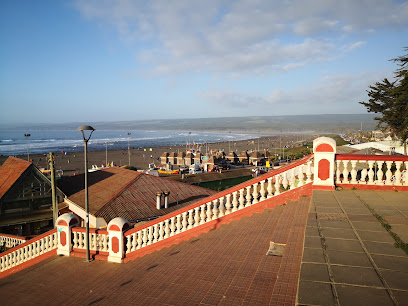
Infiernillo, Pichilemu
Discover the stunning views from Infiernillo, Pichilemu's premier observation deck, and immerse yourself in the beauty of Chile's coastal scenery.
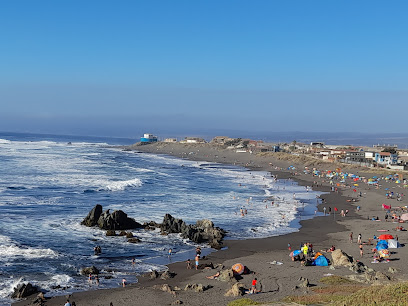
Plaza Arturo Prat
Discover the beauty and charm of Plaza Arturo Prat, a serene park in Pichilemu perfect for relaxation, recreation, and cultural experiences.
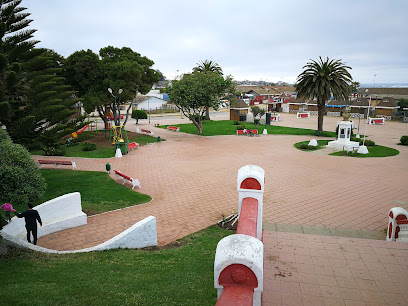
Agustín Ross Cultural Centre
Discover Pichilemu's cultural heart at the Agustín Ross Cultural Centre, a beautifully restored historical landmark hosting art, history, and community events.
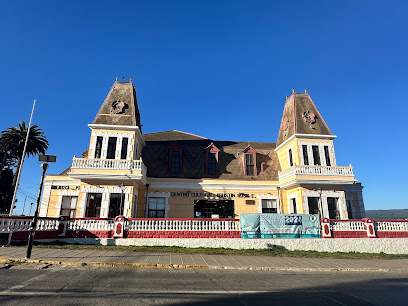
Old Train Station
Step back in time at Pichilemu's Old Train Station, a beautifully preserved National Monument and cultural center.
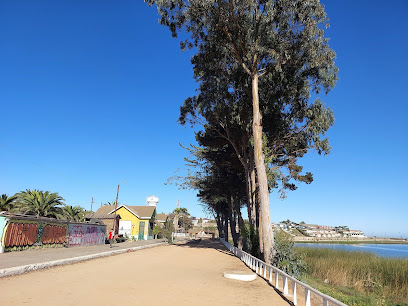
Molino de agua de Pañul
Experience the historical charm of Molino de Agua de Paúl in Pichilemu, where nature meets culture in a breathtaking coastal setting.
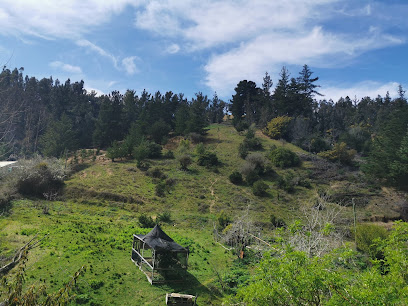
Pichilemu Domos
Discover the charm of Pichilemu Domos, where unique dome accommodations meet the beauty of the Chilean coastline, perfect for relaxation and adventure.

Playa Principal De Pichilemu
Pichilemu's main beach: gentle waves, historic charm, and a perfect spot to start your surfing adventure.
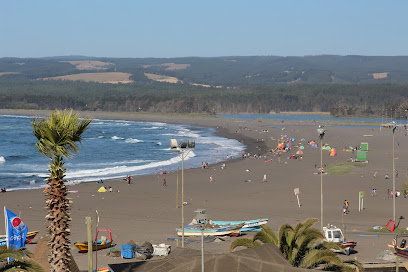
Cuarzo Lodge
Eco-friendly lodge near Punta de Lobos, Chile, offering comfortable suites, spa treatments, and delicious local cuisine for a relaxing coastal getaway.

poza del encanto
Discover Pichilemu's hidden gem: Poza del Encanto, offering stunning nature, tranquil trekking, and local legends.
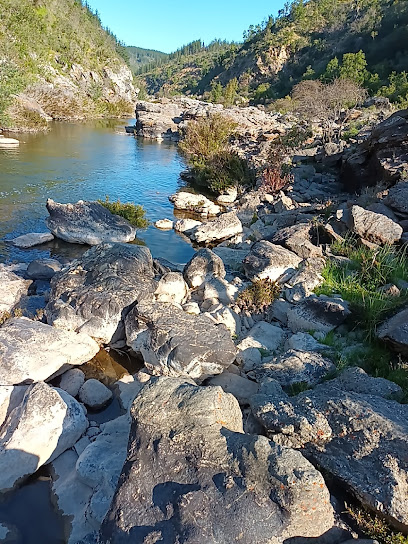
Conviento de Lobos
Experience tranquility at Conviento de Lobos, a serene hotel and yoga retreat in Punta de Lobos, where relaxation meets rejuvenation by the beautiful coastline.

Tunel El Arbol
Experience the breathtaking natural beauty of Tunel El Arbol in Marchihue, a must-visit destination showcasing Chile's unique landscapes and rich biodiversity.
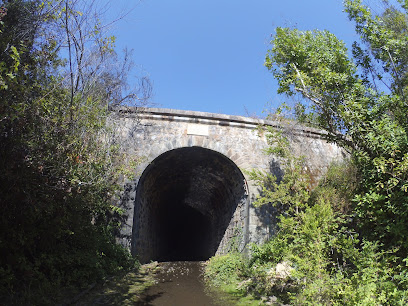
Mirador Punta Lobos - Pichilemu
Experience breathtaking Pacific views and world-class surfing at Mirador Punta Lobos, a protected coastal gem in Pichilemu, Chile.
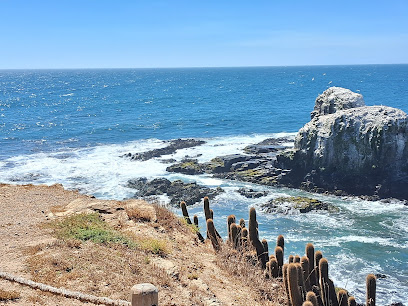
La Cruz del Surfista
Discover the essence of surfing culture at La Cruz del Surfista, Pichilemu's premier museum celebrating the sport's rich local heritage.
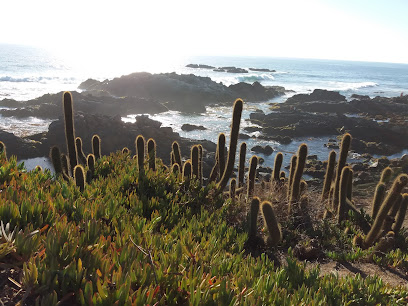
Salinas De Cahuil - Producción de sal artesanal
Explore the charming artistry of salt production at Salinas De Cahuil, a picturesque destination near Pichilemu, Chile.
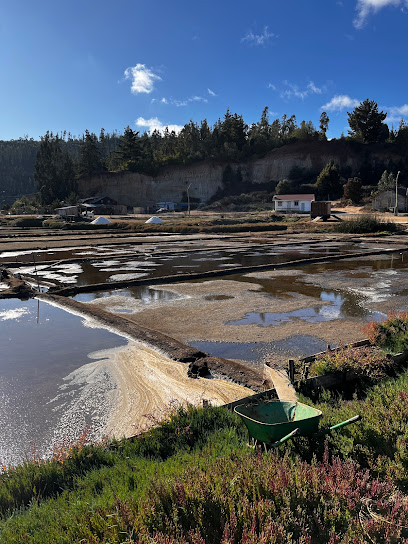
Unmissable attractions to see
Parque Ross
Explore the peaceful beauty of Parque Ross in Pichilemu, a perfect park for relaxation, picnics, and enjoying nature's tranquility.
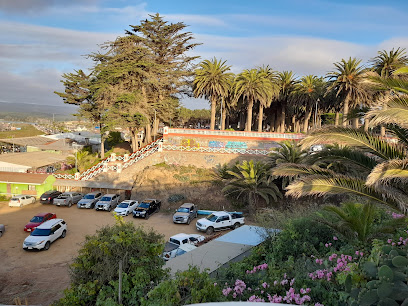
Punta de Lobos
Explore Punta de Lobos: A picturesque ecological park in Pichilemu, Chile, offering stunning coastal views, rich biodiversity, and thrilling surfing opportunities.
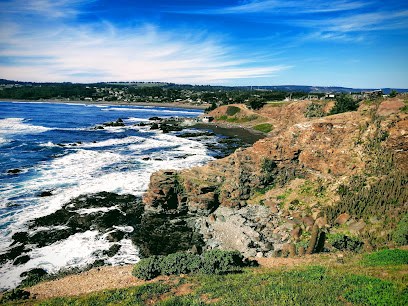
Infiernillo, Pichilemu
Experience breathtaking views and stunning sunsets at Infiernillo in Pichilemu, a must-visit coastal attraction for all travelers.
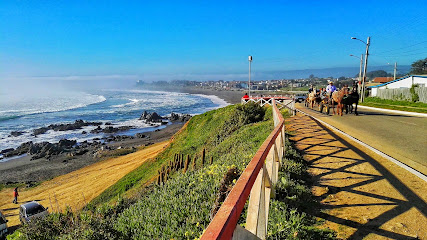
Plaza Arturo Prat
Experience the charm of Plaza Arturo Prat, a serene park in Pichilemu, where nature meets culture amidst stunning coastal views.
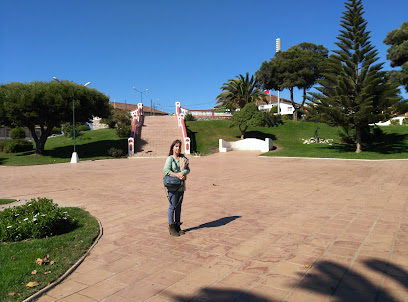
Agustín Ross Cultural Centre
Explore the Agustín Ross Cultural Centre in Pichilemu for a rich blend of art, culture, and local heritage that captivates every visitor.
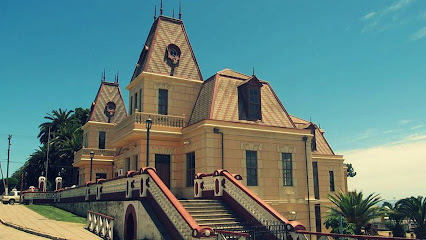
Old Train Station
Explore the Old Train Station in Pichilemu, a captivating historical landmark and local history museum that showcases the region's rich heritage.
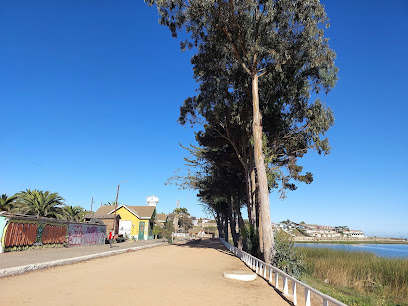
Aventura Cahuil
Discover the enchanting beauty of Aventura Cahuil, a top tourist attraction in Pichilemu, O'Higgins, perfect for nature lovers and adventure seekers.
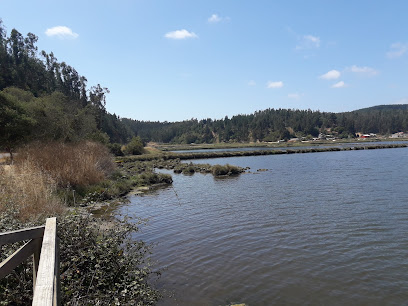
Plaza Infiernillo
Experience the tranquility of Plaza Infiernillo, a serene park in Pichilemu, perfect for relaxation, picnics, and enjoying nature's beauty.
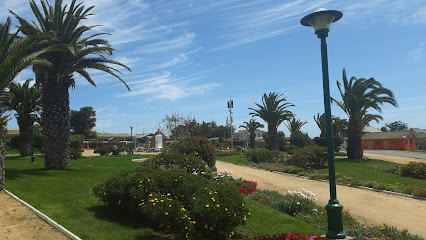
Olas de Chile Ecocamp
Discover the tranquil beauty of Olas de Chile Ecocamp in Pichilemu, where nature and comfort blend for an unforgettable eco-friendly escape.
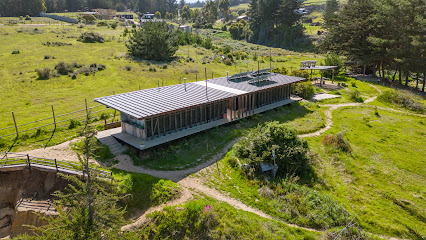
Tunel El Arbol
Explore the breathtaking Tunel El Arbol in Marchihue, O'Higgins—a natural wonder and tranquil escape into the heart of Chile's lush landscapes.
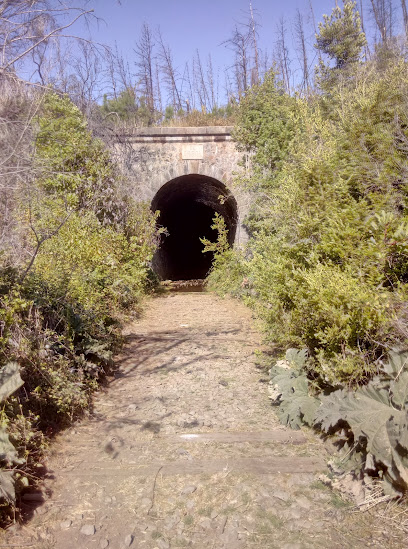
Bosque Pichilemu
Explore the tranquil beauty of Bosque Pichilemu, a serene park in O'Higgins, Chile, perfect for relaxation, picnics, and nature walks.
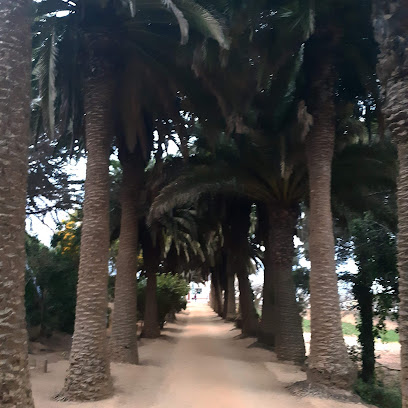
Punta de Lobos, Pichilemu
Experience the breathtaking coastal beauty and thrilling surf culture at Punta de Lobos, a paradise for nature lovers and adventurers in Pichilemu, Chile.
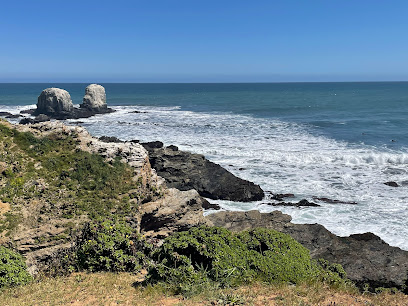
Mirador Punta Lobos - Pichilemu
Discover the stunning views and serene beauty of Mirador Punta Lobos, a must-visit coastal attraction in Pichilemu, Chile.
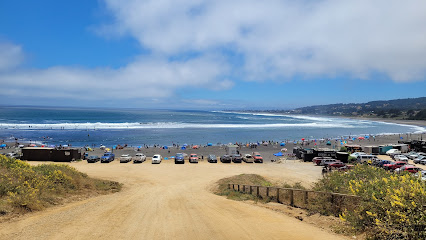
Playa de Tanumé
Experience the stunning coastline of Playa de Tanumé in Pichilemu, a perfect blend of relaxation and adventure amidst breathtaking natural beauty.
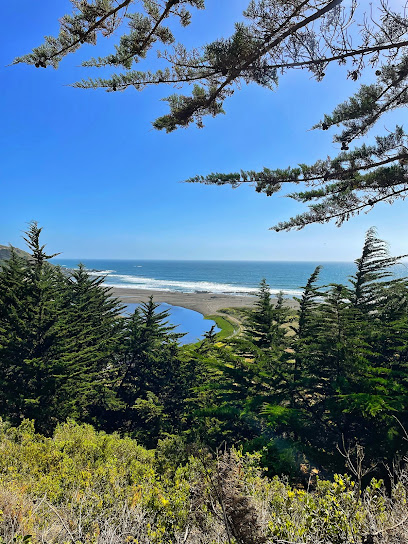
La Cruz del Surfista
Discover the essence of Chilean surf culture at La Cruz del Surfista, a unique museum celebrating the art and history of surfing in Pichilemu.
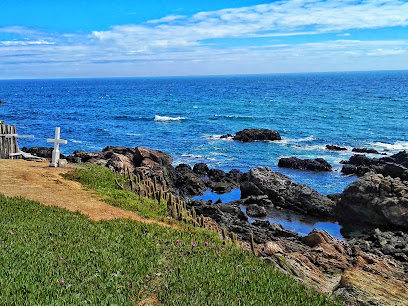
Essential places to dine
La Picá del Negro
Experience authentic Chilean cuisine at La Picá del Negro in Pichilemu – where every dish tells a story.
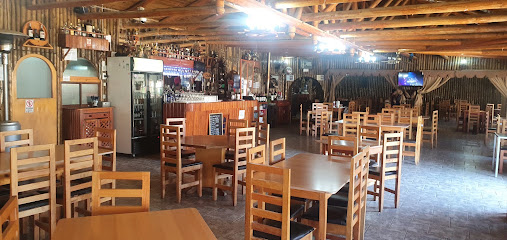
La Sal Pichilemu
Experience exquisite dining at La Sal Pichilemu, where local flavors meet breathtaking ocean views in beautiful Chile.
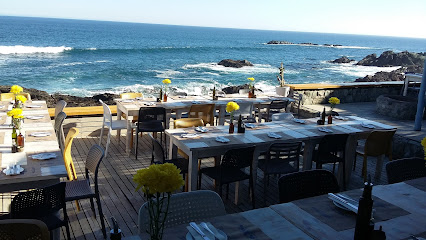
Bocas Del Mar
Discover the vibrant flavors of Peru at Bocas Del Mar in Pichilemu—an unforgettable culinary journey awaits!
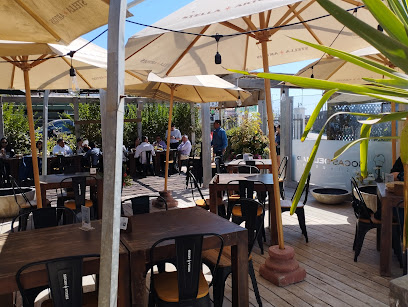
Costa Maria
Discover the authentic taste of Chile at Costa Maria in Pichilemu - where fresh seafood meets local charm.
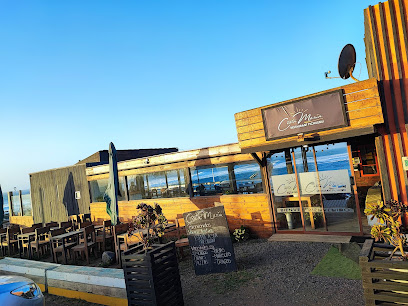
Cúrcuma
Discover Cúrcuma in Pichilemu - where local flavors meet culinary creativity in a cozy atmosphere.
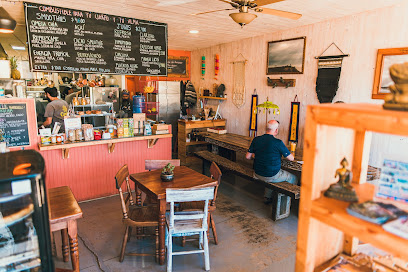
Casa Cuesta
Experience the taste of Pichilemu at Casa Cuesta - where local flavors meet culinary creativity in a charming coastal setting.
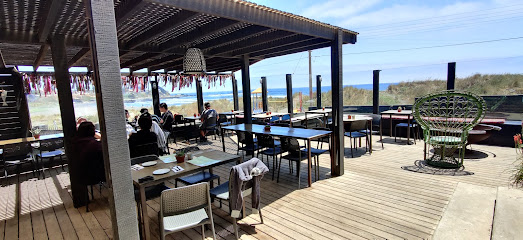
EL CARDÓN
Discover El Cardón in Pichilemu: A culinary haven serving delicious local dishes in a vibrant atmosphere.
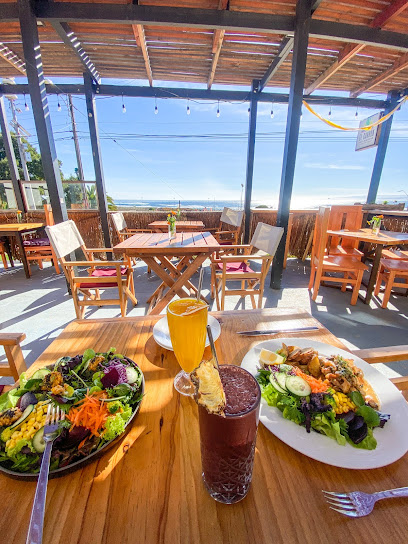
Restaurante Marisol
Experience authentic Chilean flavors at Restaurante Marisol in Cahuil with stunning ocean views and fresh local ingredients.
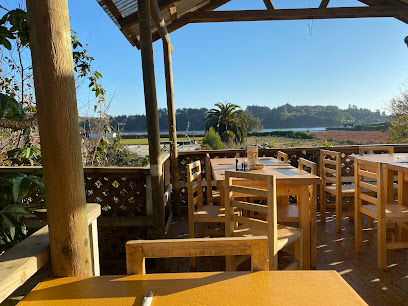
El Puente Holandes
Discover the flavors of Pichilemu at El Puente Holandes, where local cuisine meets warm hospitality in a cozy setting.
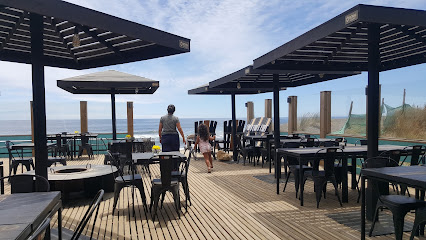
Restaurante Comida Rica
Experience authentic Chilean flavors at Restaurante Comida Rica in Pichilemu—where every dish tells a story of tradition and taste.
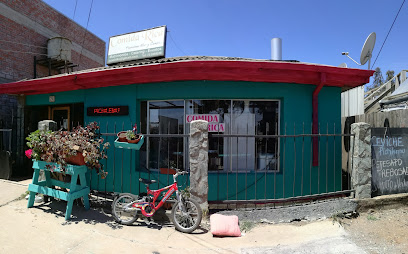
Donde Esau
Experience authentic Chilean cuisine with ocean views at Donde Esau in Pichilemu—where every dish tells a story.
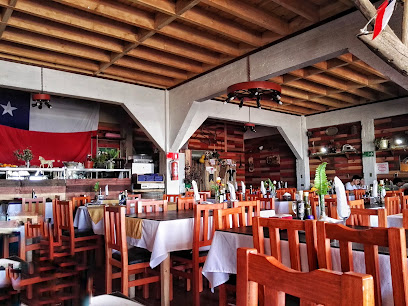
Cavala
Discover Cavala in Pichilemu: where delightful cuisine meets vibrant karaoke entertainment for an unforgettable night out.
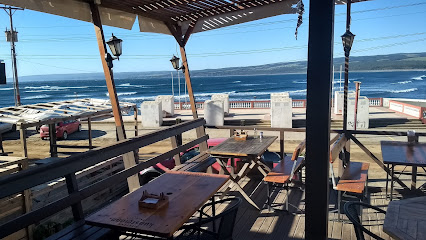
La Loba Restaurante
Discover La Loba Restaurante: A Culinary Oasis in Pichilemu Offering Exquisite Local Cuisine with Stunning Ocean Views.
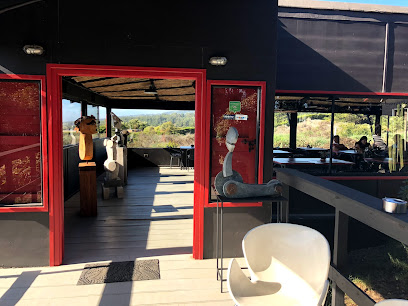
Cheers Reloaded Pichilemu
Discover Cheers Reloaded Pichilemu: A vibrant restaurant offering fresh local cuisine and lively ambiance on Chile's beautiful coast.
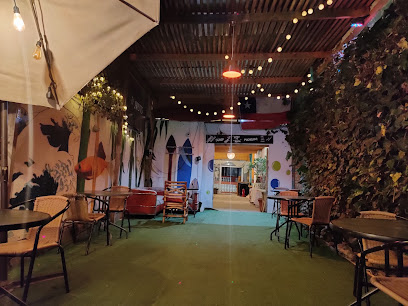
RESTAURANTE SABORES COSTINOS
Experience authentic Chilean flavors at Restaurante Sabores Costinos in Pichilemu - where tradition meets taste in a cozy setting.
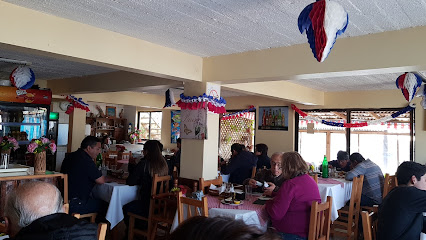
Markets, malls and hidden boutiques
Surfnet
Discover Surfnet in Pichilemu: Your ultimate destination for video games and a vibrant gaming community.
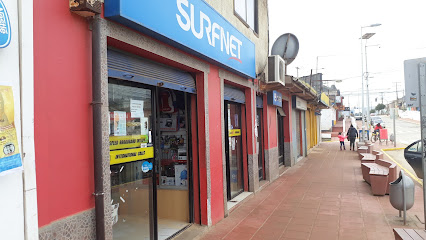
Paseo Artesanal Agustin Ross.
Discover handmade treasures at Paseo Artesanal Agustin Ross in Pichilemu, where local artisans showcase their unique crafts and culinary delights.
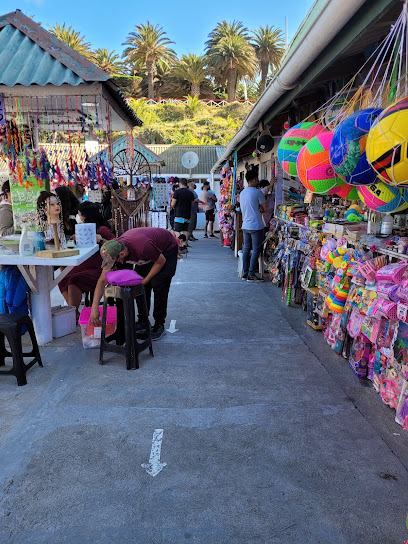
Julia Camila
Explore Julia Camila in Pichilemu for unique second-hand clothing treasures and sustainable fashion finds that tell a story.
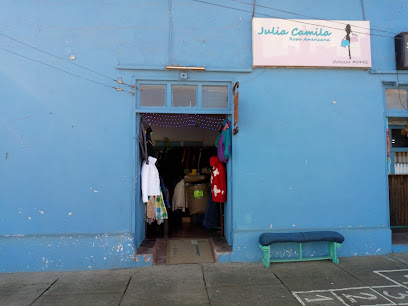
Wild Lama Pichilemu
Explore Wild Lama Pichilemu for trendy clothing and unique accessories that embody the coastal spirit of this vibrant town.
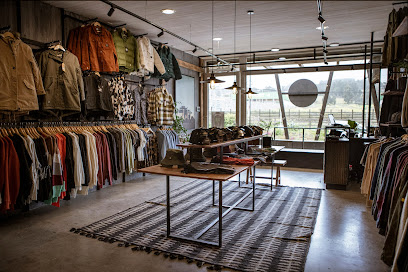
Maui and Sons
Discover surf-inspired fashion at Maui and Sons, the ultimate clothing store in Pichilemu, perfect for beach lovers and adventurers.
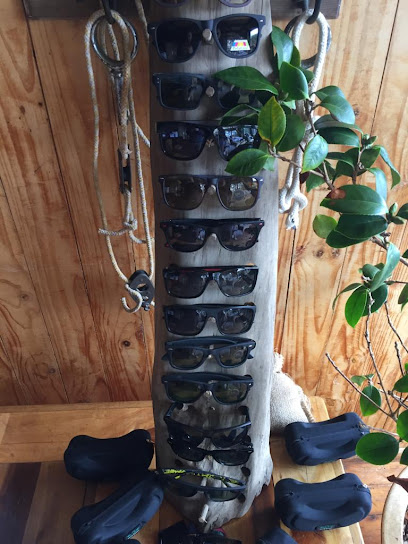
Tienda De Ropa SADE
Explore Tienda De Ropa SADE in Pichilemu for unique women's fashion that captures the spirit of this coastal town.
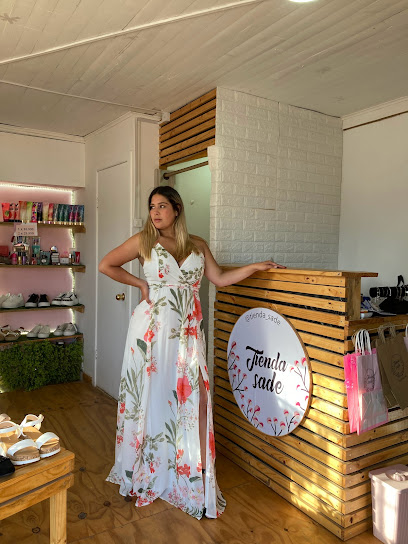
Moana
Explore Moana in Pichilemu for unique youth fashion and local artisan finds that celebrate the spirit of coastal living.
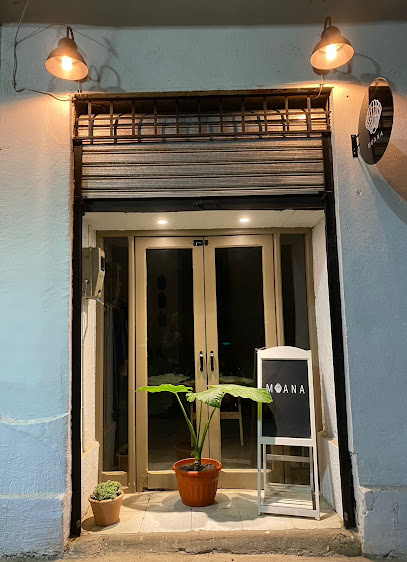
Dominga Store | Sorpresas a Domicilio
Explore local flavors and styles at Dominga Store, your go-to grocery delivery and clothing shop in Pichilemu.

playa de pichilemu santiago ariztia baraona
Explore Playa de Pichilemu, where stunning beaches meet unique shopping experiences, offering a rich taste of Chilean culture and craftsmanship.
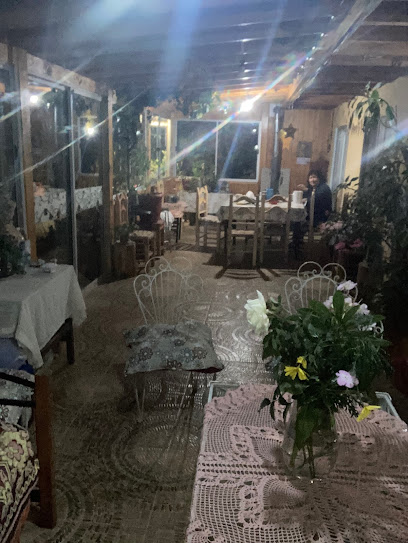
PAFFU STORE
Discover the vibrant fashion scene at PAFFU STORE in Pichilemu, where local creativity meets unique style in a charming coastal setting.
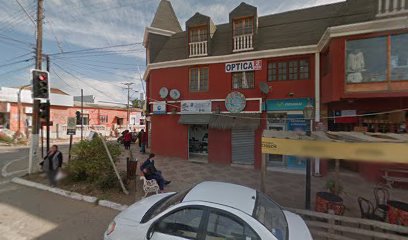
Aloha Pichilemu Ropa Reciclada
Explore sustainable fashion and unique treasures at Aloha Pichilemu Ropa Reciclada, the premier used clothing store in Pichilemu.
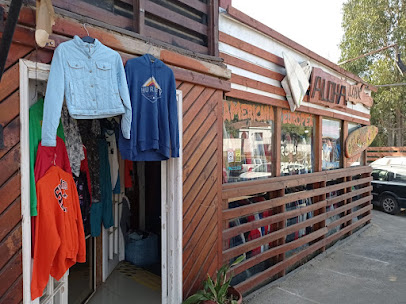
Mall Chino Pichilemu (Av.Ortuzar)
Discover the charm of Mall Chino Pichilemu: a shopping haven offering local crafts, diverse dining, and vibrant community spirit in O'Higgins.
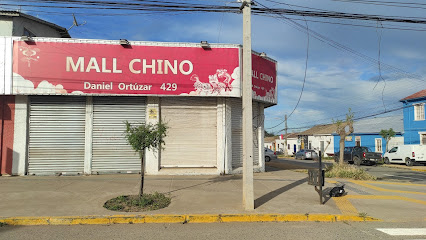
Estefy Boutique
Explore sustainable fashion at Estefy Boutique in Pichilemu, offering unique second-hand clothing for an eco-friendly wardrobe.
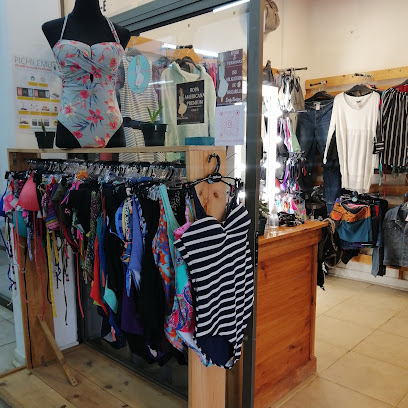
Epica
Explore Epica, the ultimate clothing destination in Pichilemu, where style meets the stunning coastal atmosphere of Chile.
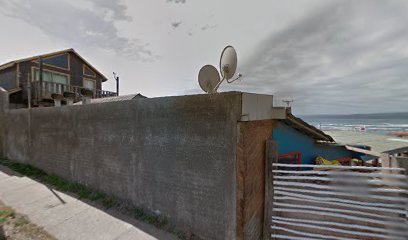
SCRUNCHIESOFICIAL
Explore SCRUNCHIESOFICIAL in Pichilemu for trendy scrunchies and fashion accessories that embody local style and creativity.
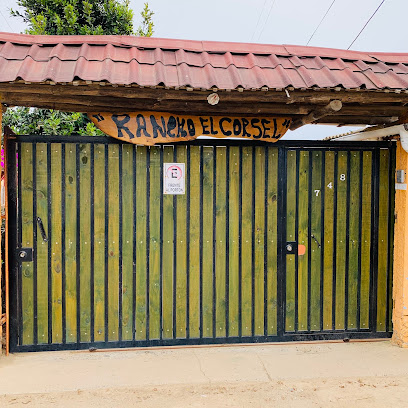
Essential bars & hidden hideouts
La Picá del Negro
Experience the authentic flavors of Chile at La Picá del Negro, a top-rated restaurant in Pichilemu, known for its fresh seafood and welcoming atmosphere.
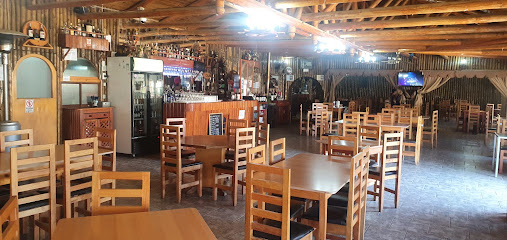
Pepe Cuervo
Experience the vibrant nightlife of Pichilemu at Pepe Cuervo, where great drinks and a lively atmosphere await you.
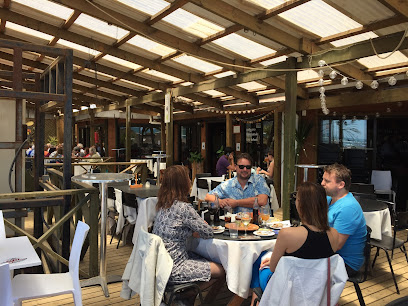
La Sal Pichilemu
Experience the best of Chilean cuisine at La Sal Pichilemu, where fresh ingredients and stunning coastal views create an unforgettable dining experience.
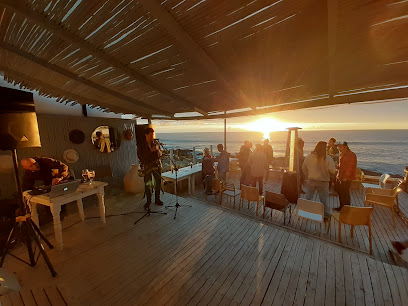
Bar La Virgen Pichilemu
Discover the vibrant flavors of Pichilemu at Bar La Virgen, where local cuisine meets a lively ambiance along the stunning Chilean coast.
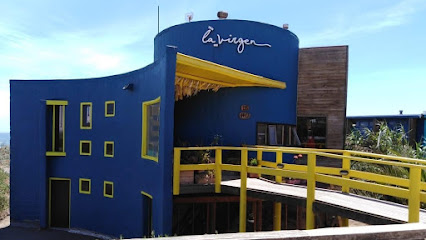
Pulpo Bar Restaurant
Discover the flavors of the sea at Pulpo Bar Restaurant in Pichilemu, a culinary haven for seafood lovers and beachgoers alike.
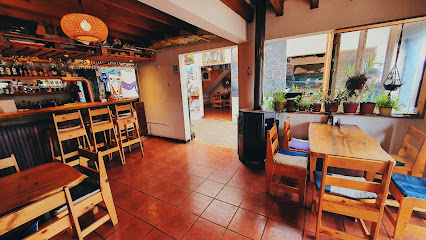
Waitara Club
Experience the vibrant nightlife of Pichilemu at Waitara Club - a premier disco and gastropub with stunning ocean views.
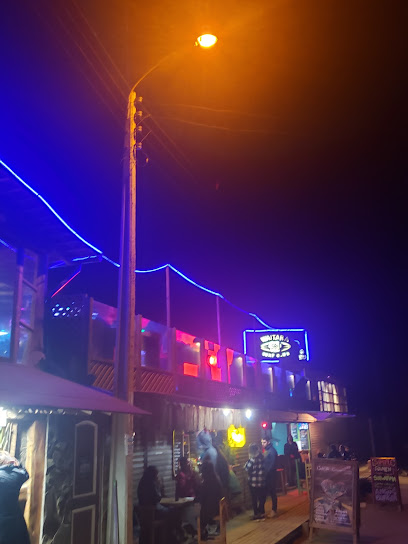
Pub Viva Chile
Discover the lively nightlife of Pichilemu at Pub Viva Chile, where local culture meets vibrant entertainment and delicious drinks.
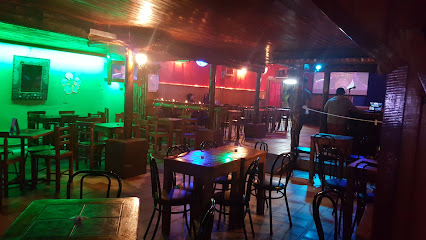
Casa Cuesta
Discover Casa Cuesta in Pichilemu, where local flavors and a warm ambiance create an unforgettable dining experience for every visitor.
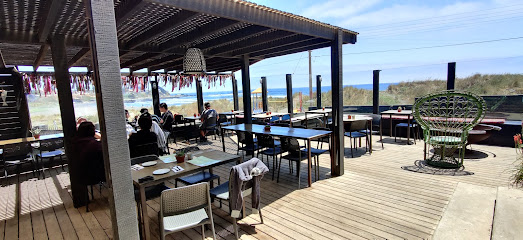
Cavala
Discover delicious cuisine and vibrant karaoke at Cavala, the heart of Pichilemu's nightlife and dining scene.
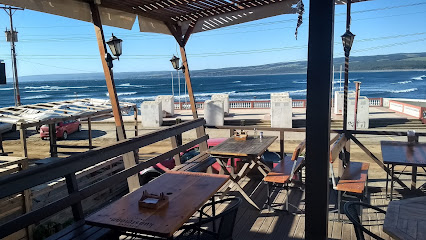
Cheers Reloaded Pichilemu
Discover the vibrant culinary scene at Cheers Reloaded in Pichilemu, offering delightful dishes and a lively atmosphere for an unforgettable dining experience.
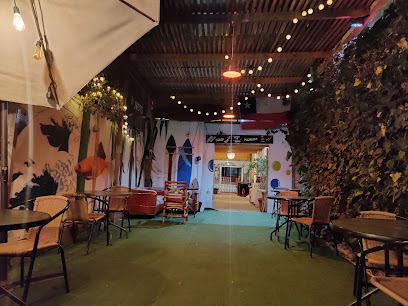
El Playero
Experience the best of Chilean cuisine at El Playero in Pichilemu, where every dish celebrates local flavors and coastal charm.
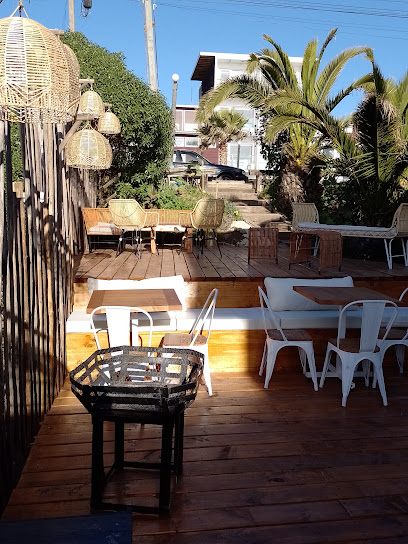
Restaurant Boulevar Pub
Experience the vibrant culinary scene at Restaurant Boulevar Pub in Pichilemu, where delicious food meets a lively atmosphere.
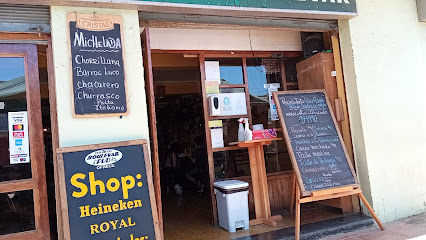
Nativo Restobar Pichilemu
Discover the flavors of Pichilemu at Nativo Restobar, where local ingredients meet international culinary flair in a vibrant setting.
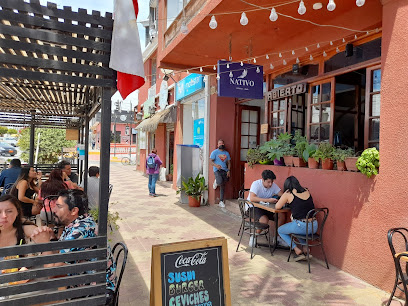
Viejo Lobo, Cervecería del Mar
Discover Viejo Lobo, a charming beer hall in Pichilemu with local craft beers and stunning coastal views, perfect for a relaxing visit.
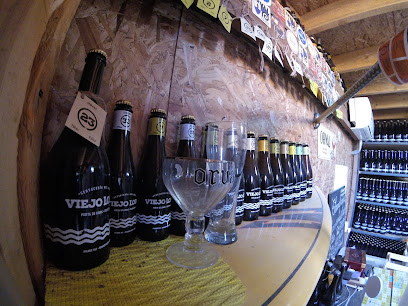
Local Phrases about Pichilemu
-
- HelloHola
[oh-lah] - GoodbyeAdiós
[ah-dee-ohs] - YesSí
[see] - NoNo
[noh] - Please/You're welcomePor favor/De nada
[por fah-vohr/deh nah-dah] - Thank youGracias
[grah-see-ahs] - Excuse me/SorryPerdón/Lo siento
[pehr-dohn/loh see-ehn-toh] - How are you?¿Cómo estás?
[koh-moh ehs-tahs] - Fine. And you?Bien. ¿Y tú?
[byehn. ee too] - Do you speak English?¿Hablas inglés?
[ah-blahs een-glays] - I don't understandNo entiendo
[noh ehn-tee-ehn-doh]
- HelloHola
-
- I'd like to see the menu, pleaseMe gustaría ver el menú, por favor
[meh goos-tah-ree-ah behr ehl meh-noo, por fah-vohr] - I don't eat meatNo como carne
[noh koh-moh kahr-neh] - Cheers!¡Salud!
[sah-lood] - I would like to pay, pleaseMe gustaría pagar, por favor
[meh goos-tah-ree-ah pah-gahr, por fah-vohr]
- I'd like to see the menu, pleaseMe gustaría ver el menú, por favor
-
- Help!¡Ayuda!
[ah-yoo-dah] - Go away!¡Vete!
[veh-teh] - Call the Police!¡Llama a la policía!
[yah-mah ah lah poh-lee-see-ah] - Call a doctor!¡Llama a un médico!
[yah-mah ah oon meh-dee-koh] - I'm lostEstoy perdido/a
[ehs-toy pehr-dee-doh/dah] - I'm illEstoy enfermo/a
[ehs-toy ehn-fehr-moh/dah]
- Help!¡Ayuda!
-
- I'd like to buy...Me gustaría comprar...
[meh goos-tah-ree-ah kohm-prahr...] - I'm just lookingSolo estoy mirando
[soh-loh ehs-toy mee-rahn-doh] - How much is it?¿Cuánto cuesta?
[kwahn-toh kwehs-tah] - That's too expensiveEsto es muy caro
[ehs-toh ehs moo-ee kah-roh] - Can you lower the price?¿Puedes bajar el precio?
[pweh-dehs bah-hahr ehl pree-eh-soh]
- I'd like to buy...Me gustaría comprar...
-
- What time is it?¿Qué hora es?
[keh oh-rah ehs] - It's one o'clockEs la una en punto
[ehs lah oo-nah ehn poon-toh] - Half past (10)Media hora (10)
[meh-dee-ah oh-rah (deez)] - MorningMañana
[mah-nyah-nah] - AfternoonTarde
[tahr-deh] - EveningNoche
[noh-cheh] - YesterdayAyer
[ah-yehr] - TodayHoy
[oy] - TomorrowMañana
[mah-nyah-nah] - 1Uno
[oo-noh] - 2Dos
[dohs] - 3Tres
[trehs] - 4Cuatro
[kwah-troh] - 5Cinco
[seen-koh] - 6Seis
[says] - 7Siete
[syeh-teh] - 8Ocho
[oh-choh] - 9Nueve
[nweh-veh] - 10Diez
[dyehs]
- What time is it?¿Qué hora es?
-
- Where's a/the...?¿Dónde está el/la...?
[dohn-deh ehs-tah ehl/lah] - What's the address?¿Cuál es la dirección?
[kwahl ehs lah dee-rehk-see-ohn] - Can you show me (on the map)?¿Puedes mostrarme (en el mapa)?
[pweh-dehs mohs-trar-meh (ehn ehl mah-pah)] - When's the next (bus)?¿Cuándo es el próximo (autobús)?
[kwan-doh ehs ehl proh-kshee-moh (ow-toh-booce)] - A ticket (to ....)Un boleto (a ...)
[oon boh-leh-toh (ah ...)]
- Where's a/the...?¿Dónde está el/la...?
History of Pichilemu
-
The coastal region of Pichilemu was originally inhabited by the Promaucaes, a branch of the Mapuche people. These indigenous inhabitants thrived due to their knowledge of fishing, agriculture, and the abundant natural resources provided by the land and sea. Their legacy is still evident in the area's rich cultural heritage and archaeological sites.
-
With the arrival of the Spanish in the 16th century, Pichilemu and its surrounding areas saw significant changes. The Spanish established colonial settlements, and the indigenous people were subjected to new governance and religious influences. The introduction of Catholicism led to the construction of churches and other colonial structures that still stand today.
-
Pichilemu was officially founded in 1891 by Agustín Ross Edwards, a prominent Chilean politician and diplomat. Ross Edwards envisioned Pichilemu as a resort town, leading to the development of various infrastructure projects, including a railway line connecting the town to Santiago. His contributions were pivotal in shaping the town's early growth and making it a popular destination.
-
One of the most iconic landmarks in Pichilemu is the Agustín Ross Park, which was established in the early 20th century. The park, along with the adjacent Casino Ross, was part of Agustín Ross Edwards' vision to create a luxurious coastal retreat. The park's beautiful gardens, terraces, and the historical casino building are a testament to the town's heritage and attract numerous visitors each year.
-
In the latter half of the 20th century, Pichilemu gained international recognition as a premier surfing destination. The town's unique geography, with its long beaches and consistent waves, has made it a hotspot for surfers from around the world. Punta de Lobos, in particular, is renowned for its world-class waves and has hosted several international surfing competitions.
-
Pichilemu is home to a variety of cultural festivals and traditions that reflect its rich history and vibrant community. Events such as the Semana Pichilemina (Pichilemu Week) celebrate local culture through music, dance, and cuisine. These festivals provide an immersive experience for visitors, showcasing the town's unique blend of indigenous and colonial influences.
-
In recent years, Pichilemu has seen significant development in its tourism infrastructure, with new hotels, restaurants, and recreational facilities enhancing the visitor experience. Despite this growth, the town has managed to preserve its historical charm and natural beauty, making it a beloved destination for both relaxation and adventure.
Pichilemu Essentials
-
Pichilemu is located in the O'Higgins Region of Chile, approximately 200 kilometers southwest of Santiago. The nearest major airport is Arturo Merino Benítez International Airport in Santiago. From Santiago, you can take a bus from the Terminal Alameda or Terminal San Borja, which takes around 3-4 hours to reach Pichilemu. Alternatively, renting a car is an option for a more flexible journey. The drive from Santiago to Pichilemu takes approximately 3 hours via Route 78 and Route 90.
-
Pichilemu is a small coastal town, and many local attractions are within walking distance. For longer distances within the town, local taxis are available and relatively inexpensive. There are also colectivos (shared taxis) that follow specific routes and are a cost-effective means of transportation. Renting a bicycle can be a fun and eco-friendly way to explore the town and its surroundings. Public buses connect Pichilemu with nearby towns and villages.
-
The official currency in Chile is the Chilean Peso (CLP). Credit and debit cards are widely accepted in most hotels, restaurants, and shops in Pichilemu. However, it is advisable to carry some cash, especially for smaller establishments, local markets, and public transportation. ATMs are available in the town, but it’s wise to withdraw sufficient cash in Santiago or another major city before heading to Pichilemu.
-
Pichilemu is generally a safe destination for tourists. However, like any travel destination, it is advisable to take standard precautions. Avoid walking alone at night in unfamiliar or poorly lit areas. Keep an eye on your belongings, especially in crowded places like markets or during events. While Pichilemu does not have neighborhoods with high crime rates specifically targeting tourists, staying vigilant and aware of your surroundings is always best.
-
In case of emergency, dial 133 for police assistance, 131 for an ambulance, and 132 for fire services. Pichilemu has a local police station and medical facilities, including a hospital and pharmacies. It is recommended to have travel insurance that covers medical emergencies. For minor health issues, there are pharmacies in the town where you can purchase over-the-counter medications.
-
Fashion: Do dress in casual and comfortable clothing, suitable for beach and outdoor activities. Don't wear overly revealing clothing in religious or formal settings. Religion: Do respect local customs and traditions, especially when visiting churches or religious sites. Public Transport: Do be courteous and give up your seat to elderly passengers. Don't eat or drink on public transport. Greetings: Do greet locals with a friendly 'Hola' or 'Buenos días'. A handshake is common when meeting someone for the first time. Eating & Drinking: Do try local seafood and traditional Chilean dishes. Don't refuse food or drink offered by hosts, as it can be considered impolite.
-
To experience Pichilemu like a local, visit the Feria Artesanal, a local market where you can buy handmade crafts, fresh produce, and traditional Chilean goods. Engage with locals, who are often friendly and willing to share stories about the town's history and culture. Don’t miss visiting Punta de Lobos, a world-renowned surfing spot. For a unique experience, try a surf lesson or enjoy a sunset walk along the beach. Additionally, explore the nearby Cahuil Salt Flats, where you can learn about traditional salt harvesting.
Trending Landmarks in Pichilemu
-
Parque Ross
-
Infiernillo, Pichilemu
-
Plaza Arturo Prat
-
Agustín Ross Cultural Centre
-
Old Train Station
-
Molino de agua de Pañul
-
Pichilemu Domos
-
Playa Principal De Pichilemu
-
Cuarzo Lodge
-
poza del encanto
-
Conviento de Lobos
-
Tunel El Arbol
-
Mirador Punta Lobos - Pichilemu
-
La Cruz del Surfista
-
Salinas De Cahuil - Producción de sal artesanal
Nearby Cities to Pichilemu
-
Things To Do in Rancagua
-
Things To Do in Valparaíso
-
Things To Do in Viña del Mar
-
Things To Do in Santiago
-
Things To Do in Concepción
-
Things To Do in Mendoza
-
Things To Do in San Rafael
-
Things To Do in San Juan
-
Things To Do in Temuco
-
Things To Do in Coquimbo
-
Things To Do in La Serena
-
Things To Do in Pucon
-
Things To Do in Valdivia
-
Things To Do in Osorno
-
Things To Do in Bariloche









